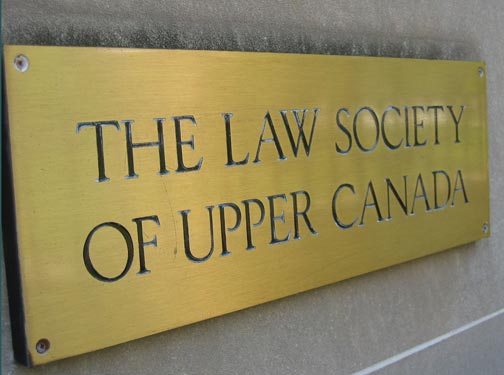
A Law Society of Upper Canada appeal panel has reduced a Toronto real estate lawyer’s disbarment to a two-year suspension in a split decision that centred on how much weight lengthy delays should be given in penalty considerations.
 The law society first contacted lawyer John Abbott about a mortgage fraud complaint in 2007, but more than six years had passed before the regulator commenced a discipline hearing in the matter.
The law society first contacted lawyer John Abbott about a mortgage fraud complaint in 2007, but more than six years had passed before the regulator commenced a discipline hearing in the matter.
In the years between 2007 and 2013, LSUC investigators made “requests that were needlessly repeated, apparently due to the succession of investigators who handled the file,” according to the majority’s finding on appeal.
In a 2-3 decision, the majority of the appeal panel found the hearing panel, in deciding to disbar Abbott for knowingly assisting in mortgage fraud based on willful blindness, failed to put sufficient weight on the “extraordinary delay that took place here.”
“While the hearing division took the law society’s delay into account, the panel did not give proper consideration to the multi-faceted impact of this delay on the public interest,” wrote Raj Anand on behalf of the majority.
“Together with other aspects of its reasons in support of revocation of the applicant’s licence, the hearing division erred in law by failing to give proper significance to the delay factor,” he added.
The hearing panel had found Abbott did not demonstrate “exceptional circumstances” that would mitigate his penalty. In its 30-page ruling, the majority suggests the exceptional circumstances requirement should be considered more broadly. The panel should have considered prejudice not just to the lawyer but the administration of self-regulation, the majority said.
Lawyer James Morton, who represented Abbott, calls the majority’s decision “remarkable.”
“I think the thing that was most striking was that they took delay standing alone and they raised it to a major consideration in terms of penalty,” Morton says. “There have been cases where delay has been taken into account but to move from revocation — which we said was not appropriate — to a suspension is a very major step.”
Morton adds if the majority’s decision stands, it will be significant “to more than just the law society. I think it has implications in other self-regulated bodies.”
In Abbott, the dissent was reluctant to disturb the hearing panel’s findings on appeal.
“We see no error in law in the hearing panel’s consideration of the issue of delay,” wrote Christopher Bredt on behalf of himself and Marion Boyd. “The panel correctly recognized that delay can be a mitigating factor in determining appropriate penalty, and considered the relevant factors. Its conclusion that the prejudice from delay was nor proper basis to turn revocation into a lengthy suspension in the circumstances of this case is reasonable.”